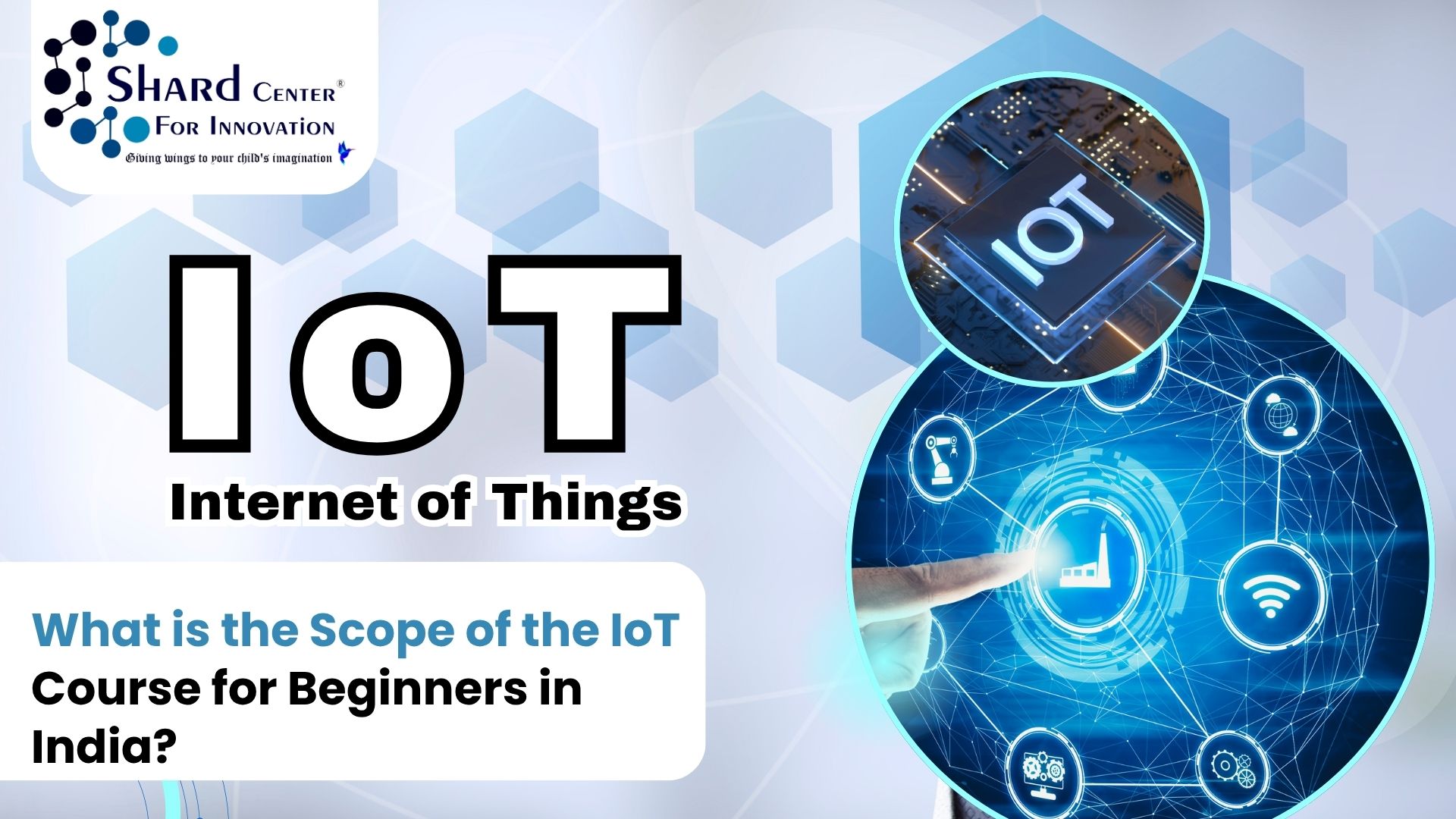Each emerging technology wave is transforming the way we work and live. It changes the worldwide market, creates opportunities, and gives rise to employment. The Internet of Things (IoT), which connects devices, individuals, and data, is at the forefront of this movement today. It is the foundation of modern innovation in the form of smart homes and industrial automation. This change presents new opportunities to students and professionals in India.
An IoT course for beginners in India. This blog describes the scope of IoT courses and how they can change your future in the industry that relies on technology.
Why Are IoT Skills in High Demand in India?
IoT has grown to be one of India's most rapidly expanding industries due to the use of smart homes, connected cars, and digital health devices. Companies in all sectors, such as healthcare, agriculture, logistics, and manufacturing, are already recruiting experts in the field of IoT. So if you are interested in this field, congratulations, you have stepped into a promising future.
When you enroll in an IoT course for beginners, you are not only taught about devices, but you also learn how they interact, how they analyze data, and how they make life a bit easier. Employers seek candidates who bridge the gap between hardware and software.
Key industries driving demand for IoT professionals in India:
Healthcare: Remote patient monitoring and smart health devices.
Agriculture: Smart irrigation and crop monitoring.
Retail: Automated supply chain and smart shopping experiences.
Manufacturing: Predictive maintenance and automation.
You will be technologically in touch and gain high employment potential in a growing industry with the appropriate IoT training.
What do You Learn in an IoT Course for Beginners?
New to the field? You may be asking yourself what you will be learning about in an IoT course. The beauty of IoT lies in the fact that it integrates hardware, code, and cloud technology, a dream combination in the eyes of those who would like to have a versatile skill set.
A beginner-friendly IoT curriculum usually covers:
Basic Electronics & Sensors – understanding how devices sense and collect data.
Programming Languages – Python, C, or Arduino coding for IoT applications.
Networking & Communication – learning how devices talk to each other.
Cloud & Data Handling – storing and analyzing IoT data for real-world use.
Security & Privacy – protecting devices and networks from cyber threats.
By the end of the course, you will be able to design simple IoT projects such as smart lighting, home automation, or wearable fitness devices. These hands-on experiences are what make you job-ready.
Career Opportunities After an IoT Course in India
The biggest question that every beginner would ask is, "Will this course really help me in developing a career?" The answer is a big yes. IoT employment in India is growing annually, and there are vacancies in this field for freshers and experienced workers.
The most popular post-IoT course job positions are:
IoT Developer – building applications and software for connected devices.
Embedded Systems Engineer – working on microcontrollers and sensors.
IoT Data Analyst – analysing data collected from devices.
IoT Security Specialist – ensuring the safety of networks and devices.
Freshers can expect entry-level roles with decent pay, while experienced professionals often move into IoT solution architect positions or managerial roles. What makes IoT exciting is its diversity—you can work in healthcare, agriculture, education, or even smart city projects.
As a beginner, an IoT course in India acts as the stepping stone to this wide career scope.
Conclusion
The scope of the IoT course in India is massive and continues to expand. It is defining all industries, including healthcare, for smart cities. As a beginner, learning IoT today means securing your place in the future job market. Through organized training and proper mentoring, you have the chance to break into interesting careers.
SCIL provides IoT training, franchise opportunities, and mentoring to help you succeed.
Frequently Asked Questions
Q1. Is the IoT difficult to learn?
Ans. Not at all. IoT involves basic electronics, coding, and cloud concepts. Even with basic training, beginners will learn it very easily.
Q2. What is the future of IoT jobs in India?
Ans. IoT employment is projected to increase at a high rate, particularly in the healthcare, manufacturing, and farming sectors. The needs of IoT developers and security specialists are already high. So you can easily catch up with the trend and build your career.
Q3. Can students from a non-technical background learn IoT?
Ans. Yes. Most IoT courses for beginners are designed in easy stages, and thus, a non-technical student can be taught to learn progressively.
Q4. Why should I choose SCIL for IoT training?
Ans. SCIL concentrates on learning in practice, actual projects, and mentorship. We have franchise opportunities also for IoT courses, which is why we are the best fit for students and entrepreneurs.
Related Blogs:
- Robotics Course for Beginners: Key Concepts in Algorithms, Design & Safety Explained
- Is a Data Science Course the Key to Succeeding in Business Analysis?
- Artificial Intelligence Program in Delhi: For Kids, Professionals & Beginners
- Top 5 Benefits of Learning AI and ML Courses for Kids
- What is Data Science? How to Become a Data Scientist in India?
- How to Land the Top 5 Robotics Job Roles in India (2025)
